For nearly a decade, Franciscans International has worked with Franciscans in the Philippines as they seek justice for the victims of the so-called “war on drugs”, during which over 30.000 people have been killed extra-judicially. However, the human rights-related ministries of the sisters and brothers in the country extend far beyond their calls for accountability. Ongoing efforts by authorities to develop large-scale energy and infrastructure projects pose a threat to both the livelihoods of marginalized communities and the environment. In April, FI visited affected communities on the islands of Luzon and Mindoro to collect first-hand information and identify additional avenues to raise their challenges at the United Nations.
Protecting the Verde Island Passage
Known as “the Amazon of the ocean”, the Verde Island Passage is a biodiversity hotspot and source of livelihood for coastal communities. Nevertheless, the government intends to dramatically expand liquefied natural gas (LNG) infrastructure on its shores. FI met with fisherfolk in Santa Clara, a settlement squeezed between the Batangas port and a large LNG terminal. Here, residents have seen a steep decline in fish catches while pulmonary diseases have surged.
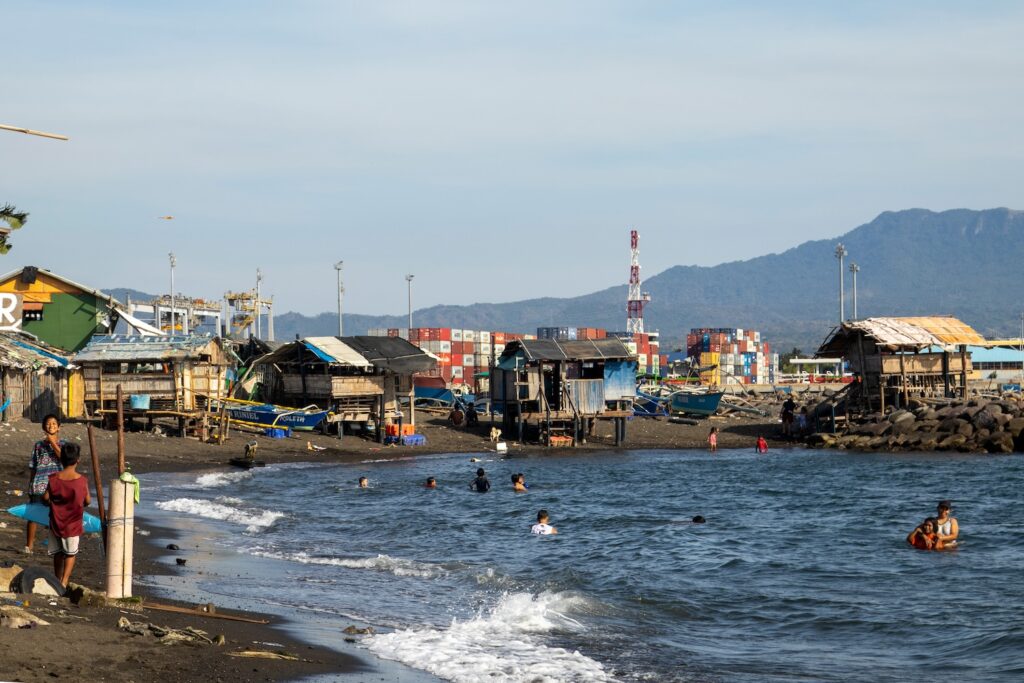
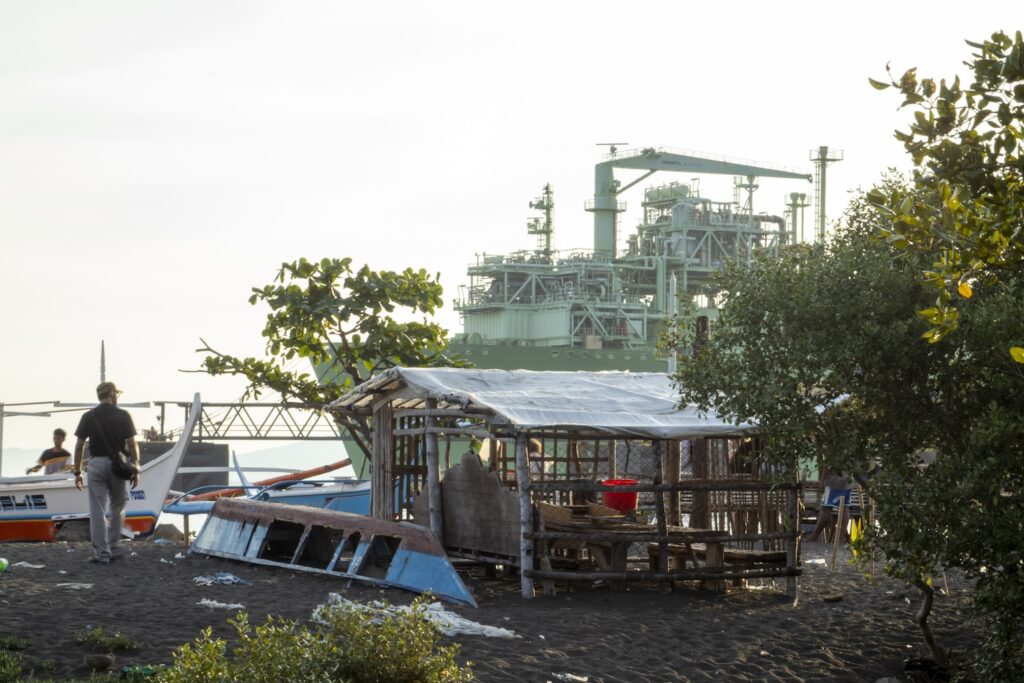
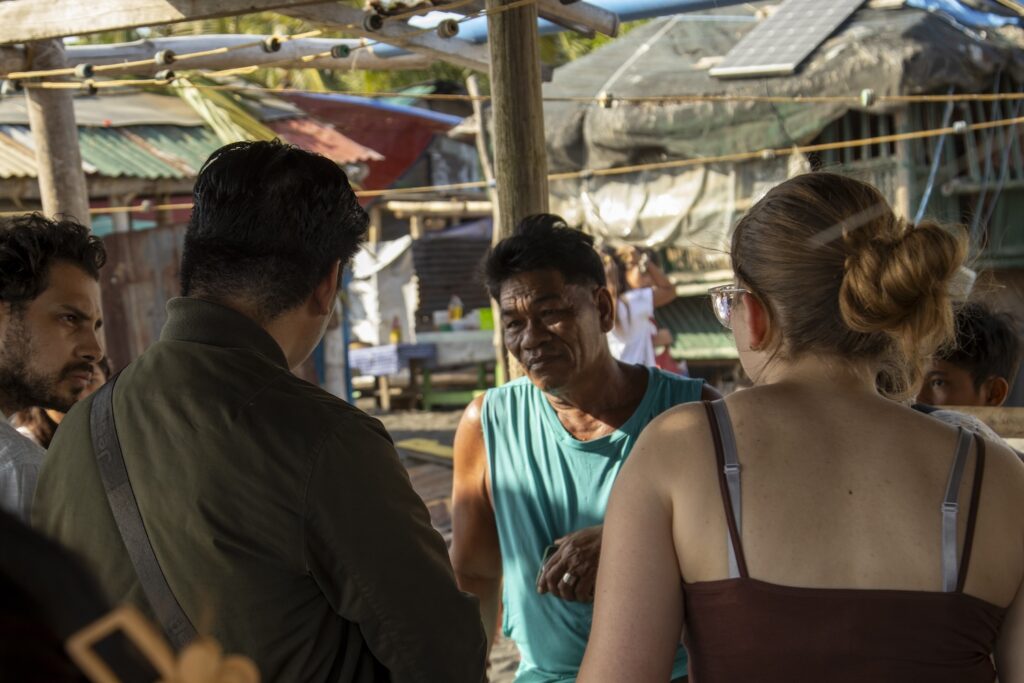
“When nature is trampled and exploited, who is affected? It’s the poor. It’s the little people who suffer when the emphasis is on big companies that only care about enriching themselves,” says Brother Jose Rico OFMCap, who is a well-known presence in Santa Clara. “They built these plants to power the whole of Batangas, but the people living next to them don’t have access to energy. It’s a great contrast, a contradiction.”
The risk of further developing energy infrastructure in this area was made clear in February 2023 when a tanker carrying 900.000 liters of oil capsized in the passage. On Mindoro, FI visited one of the communities that bore the brunt of the subsequent spill. Beyond the environmental damage, a one-year moratorium on fishing due to the pollution created food insecurity for over a million people. Many of the fishers themselves have not received the financial compensation they were promised.
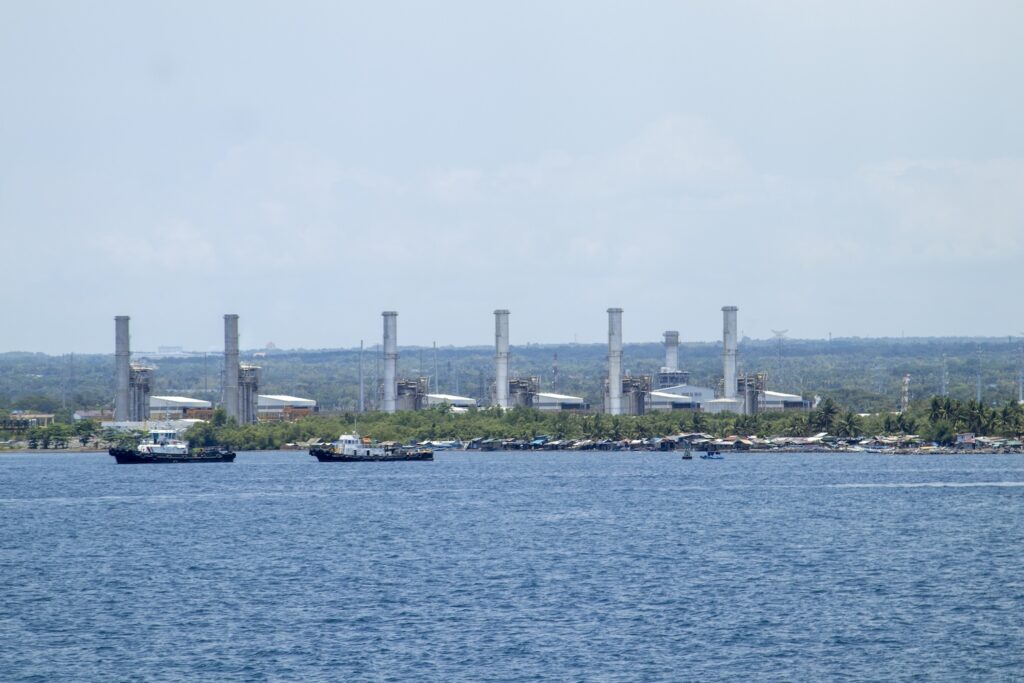
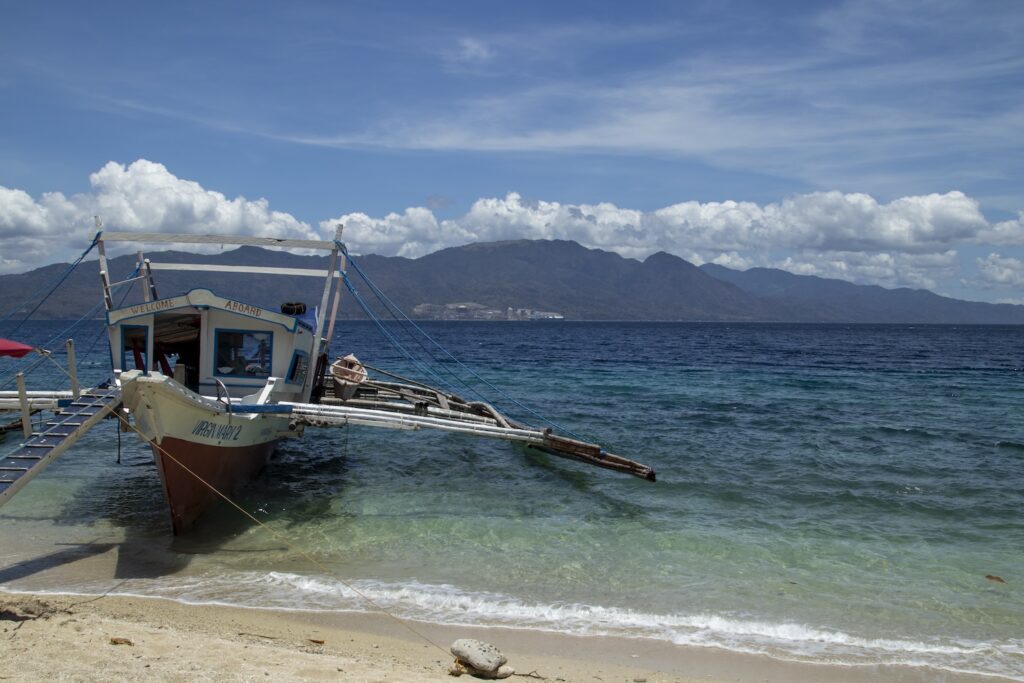
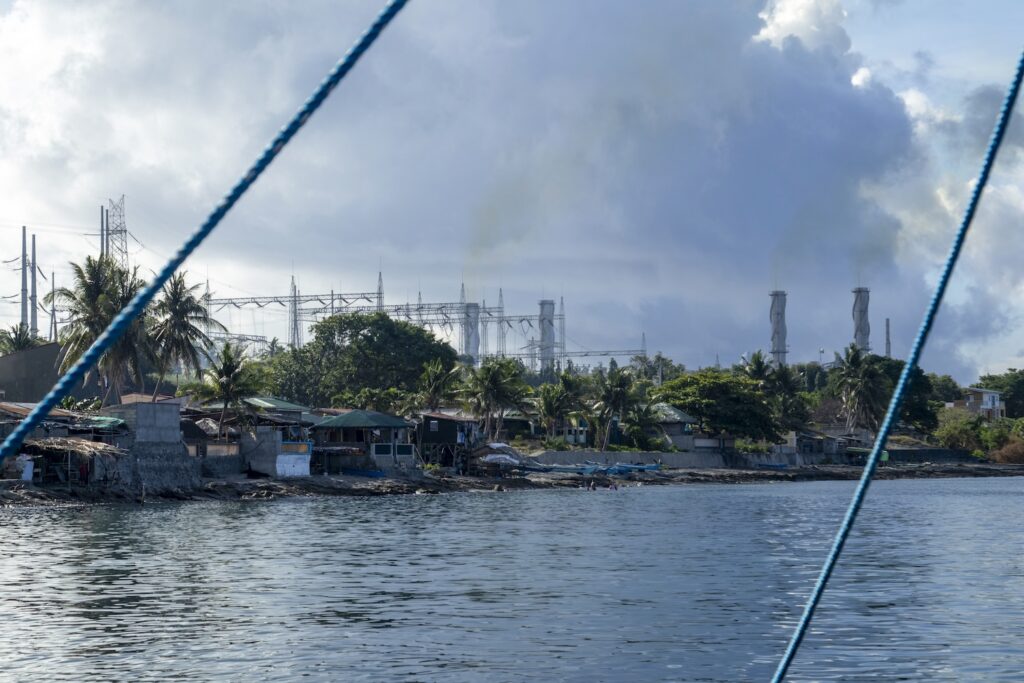
FI has already raised these issues in a submission to the UN Committee on Economic, Social and Cultural Rights, highlighting the real costs of these projects that are ostensibly meant to spur economic growth. Meanwhile, Franciscans are also exploring alternative strategies. While FI was visiting the Verde Island Passage, Brother Edwin Gariguez OFM was in Geneva to speak at the shareholders’ meeting of a large bank, urging investors to withdraw financing from LNG projects in the Philippines.
Saving Manila Bay
Many of these concerns are echoed in the Manila Bay Reclamation project, a plan to reclaim over 100 square kilometers of sea to deal with the capital city’s chronic congestion. The environmental impacts of this project are profound, as the reclamation would disrupt marine ecosystems, threaten food security and livelihoods due to reduced fish catch, damage the seabed and coastal infrastructure, and destroy the mangroves that protect the shores against erosion and flooding. Meanwhile, fisher communities that have lived on the shores of Manila Bay for generations have been unwilling to move.
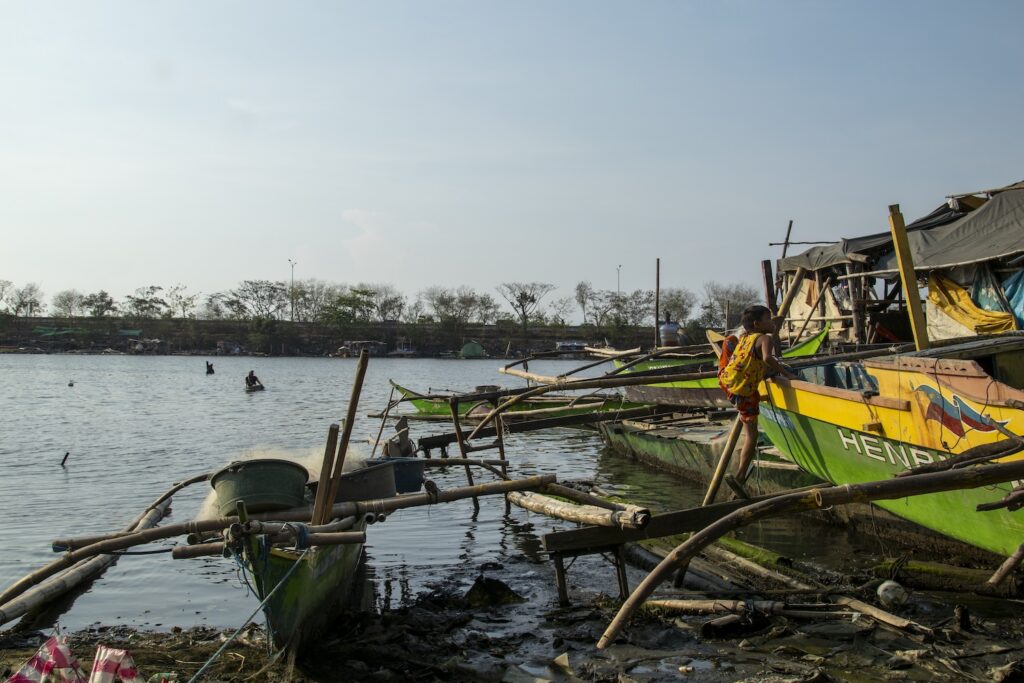
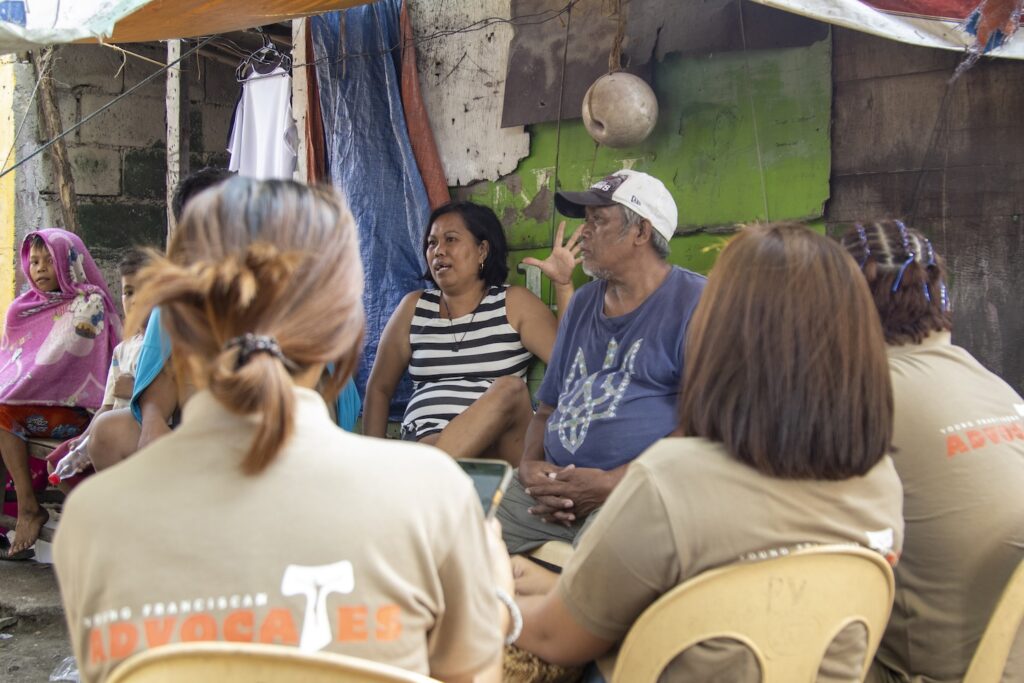
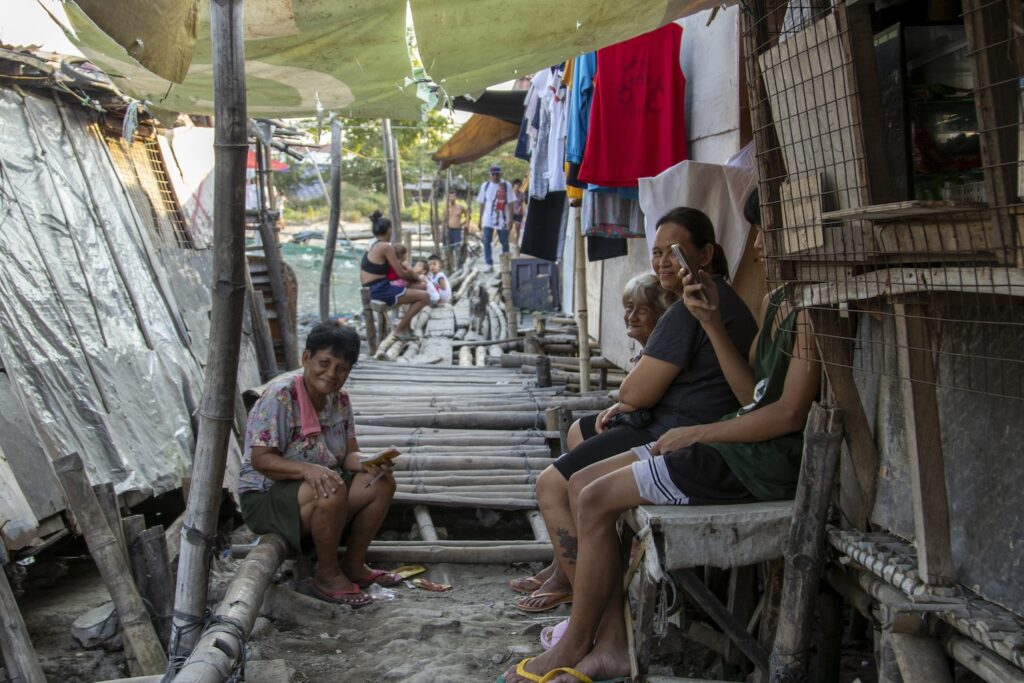
Together with the Young Franciscan Advocates, FI visited Talabo, where residents have come under increasing pressure to accept offers to relocate, facing implicit and explicit threats by authorities and the companies involved. 700 families have already been forcibly evicted to make way for reclamation projects, half of which have not yet received compensation. Meanwhile, some people who voluntarily decided to move were relocated away from the coast, cutting them off from their traditional sources of income.
“Our government has this idea that bringing in foreign investment and corporations will end with these big construction projects that bring ‘development’. But the question is: development for whom?” says Lia Mai Torres, Executive Director of the Center for Environmental Concerns. “It’s not development for the fisherfolk who live there. It is not development for the people who will lose their jobs. It is a profit-making scheme for big business, not genuine development for local communities.”
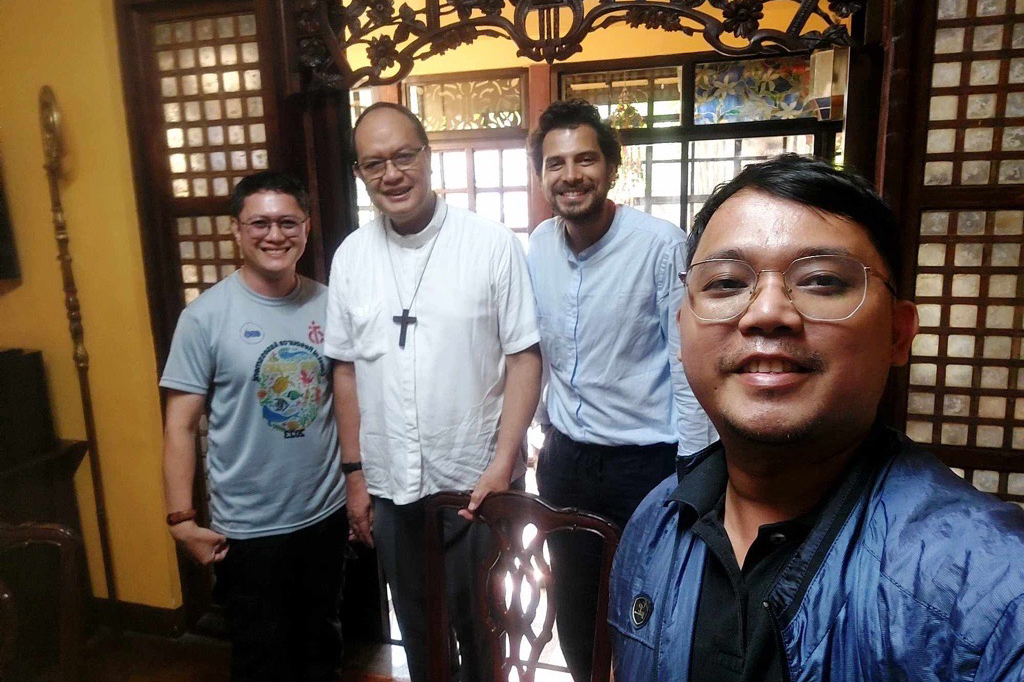
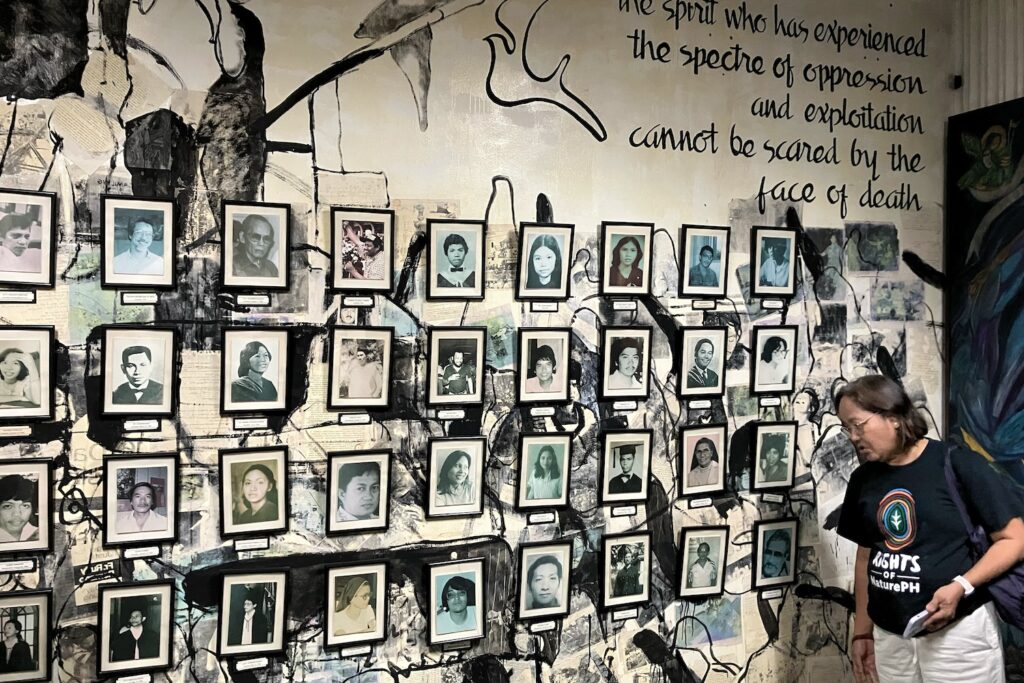
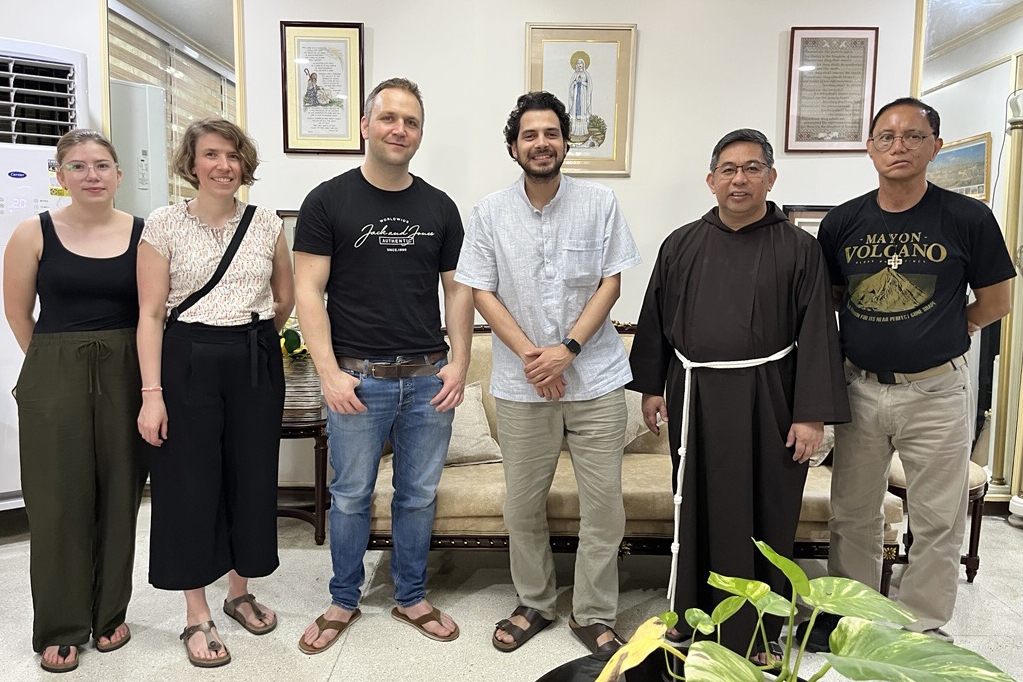
Parallel to these visits, FI also took the opportunity to meet with long-term civil society partners, Franciscan provincials, and other church leaders, including Cardinal Pablo Virgilio David. Together, we will be raising these issues at the various UN human rights mechanisms throughout 2025 and beyond.

